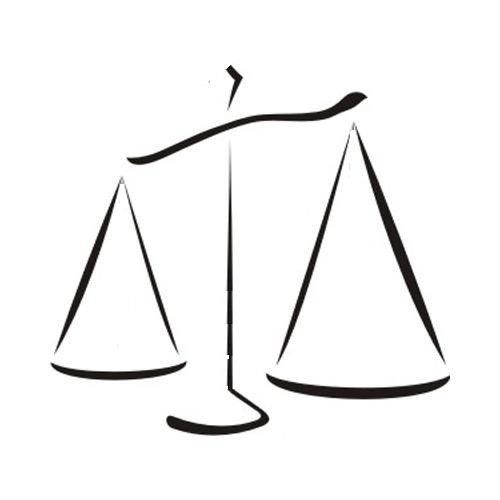Best Faith-Based Law Lawyers in Skopje
Share your needs with us, get contacted by law firms.
Free. Takes 2 min.
List of the best lawyers in Skopje, North Macedonia
About Faith-Based Law in Skopje, North Macedonia
Faith-Based Law in Skopje, North Macedonia, refers to the application of religious principles or doctrines in legal matters, often in contexts where religious and civil laws intersect. Skopje, being the capital and largest city, represents a diverse population with various religious communities including Orthodox Christianity, Islam, and others. Faith-Based Law may primarily relate to marriage, divorce, inheritance, and religious freedom, and addresses how these elements are managed within the legal framework of North Macedonia.
Why You May Need a Lawyer
Individuals may require legal assistance in Faith-Based Law due to several reasons. Common situations include conflicts arising from religious practices intersecting with civil law, such as marriage and divorce among different religious communities which may have different interpretations. Other scenarios include inheritance disputes where religious law is considered along with state law, issues of religious discrimination, and understanding one's rights related to religious practices. Lawyers specializing in this field can provide clarity and representation in navigating these complexities.
Local Laws Overview
In Skopje, North Macedonian law ensures freedom of religion, allowing individuals to practice their religion of choice. The legal system is primarily civil, but religious customs can influence personal matters. Marriage laws respect religious ceremonies, but civil registration is obligatory. Religious organizations are registered under the Law on Religious Communities. Conflicts can emerge when religious beliefs are seen to clash with public or civil standards, and legal counsel can guide individuals through these intricate situations.
Frequently Asked Questions
What is Faith-Based Law?
Faith-Based Law refers to legal issues that arise at the intersection of civil law and religious doctrines, often relating to personal status matters like marriage, divorce, and inheritance.
How does Faith-Based Law impact marriage and divorce in Skopje?
In Skopje, marriages can be conducted under religious institutions but must be registered civilly to be recognized legally. Similarly, divorces may follow religious procedures but require civil recognition for legal effect.
Can religious law override civil law in North Macedonia?
No, civil law is supreme. However, religious laws and customs are acknowledged in personal and community contexts, especially among religious groups.
What rights do I have regarding religious practices in Skopje?
North Macedonia's constitution protects religious freedom, enabling individuals to practice, change, or discuss their religion freely.
How can a lawyer assist with Faith-Based Law issues?
A lawyer can help by advising on legal rights, representing clients in conflicts involving religious and civil law, and ensuring compliance with both sets of laws.
What are the legal requirements for registering a religious organization?
Religious organizations must register with the appropriate governmental body, complying with the Law on Religious Communities, which mandates specific administrative processes and criteria.
Can I include religious traditions in wills or inheritance plans legally?
Yes, but they must align with state laws on inheritance to avoid legal conflicts; legal advice is recommended for drafting such documents.
How does the government address religious discrimination in Skopje?
The government enforces anti-discrimination laws and policies, offering legal recourse for individuals facing religious discrimination.
Are there special provisions for children’s education based on Faith-Based Law?
Religious education is permitted and parents have the right to choose religious instruction for their children in public schools under regulated programs.
Is legal assistance accessible for individuals without sufficient funds?
Yes, there are organizations and governmental bodies that offer legal aid to individuals who cannot afford legal services, ensuring access to justice for all.
Additional Resources
Individuals seeking further help in Faith-Based Law can contact organizations such as the Macedonian Helsinki Committee, which provides resources on human rights issues. The government's Office for Religious Freedom can also offer guidance. Additionally, consulting local legal aid societies can provide access to affordable or pro bono legal advice.
Next Steps
If you require legal assistance in Faith-Based Law, it is advisable to consult with a specialized lawyer who understands both the religious and civil legal systems in Skopje. Begin by researching qualified attorneys, prepare any relevant documents or information related to your case, and schedule a consultation to discuss your concerns. Utilize local resources for further guidance if necessary, and ensure you understand both your rights and obligations under the law.
Lawzana helps you find the best lawyers and law firms in Skopje through a curated and pre-screened list of qualified legal professionals. Our platform offers rankings and detailed profiles of attorneys and law firms, allowing you to compare based on practice areas, including Faith-Based Law, experience, and client feedback.
Each profile includes a description of the firm's areas of practice, client reviews, team members and partners, year of establishment, spoken languages, office locations, contact information, social media presence, and any published articles or resources. Most firms on our platform speak English and are experienced in both local and international legal matters.
Get a quote from top-rated law firms in Skopje, North Macedonia — quickly, securely, and without unnecessary hassle.
Disclaimer:
The information provided on this page is for general informational purposes only and does not constitute legal advice. While we strive to ensure the accuracy and relevance of the content, legal information may change over time, and interpretations of the law can vary. You should always consult with a qualified legal professional for advice specific to your situation.
We disclaim all liability for actions taken or not taken based on the content of this page. If you believe any information is incorrect or outdated, please contact us, and we will review and update it where appropriate.











